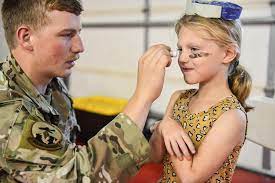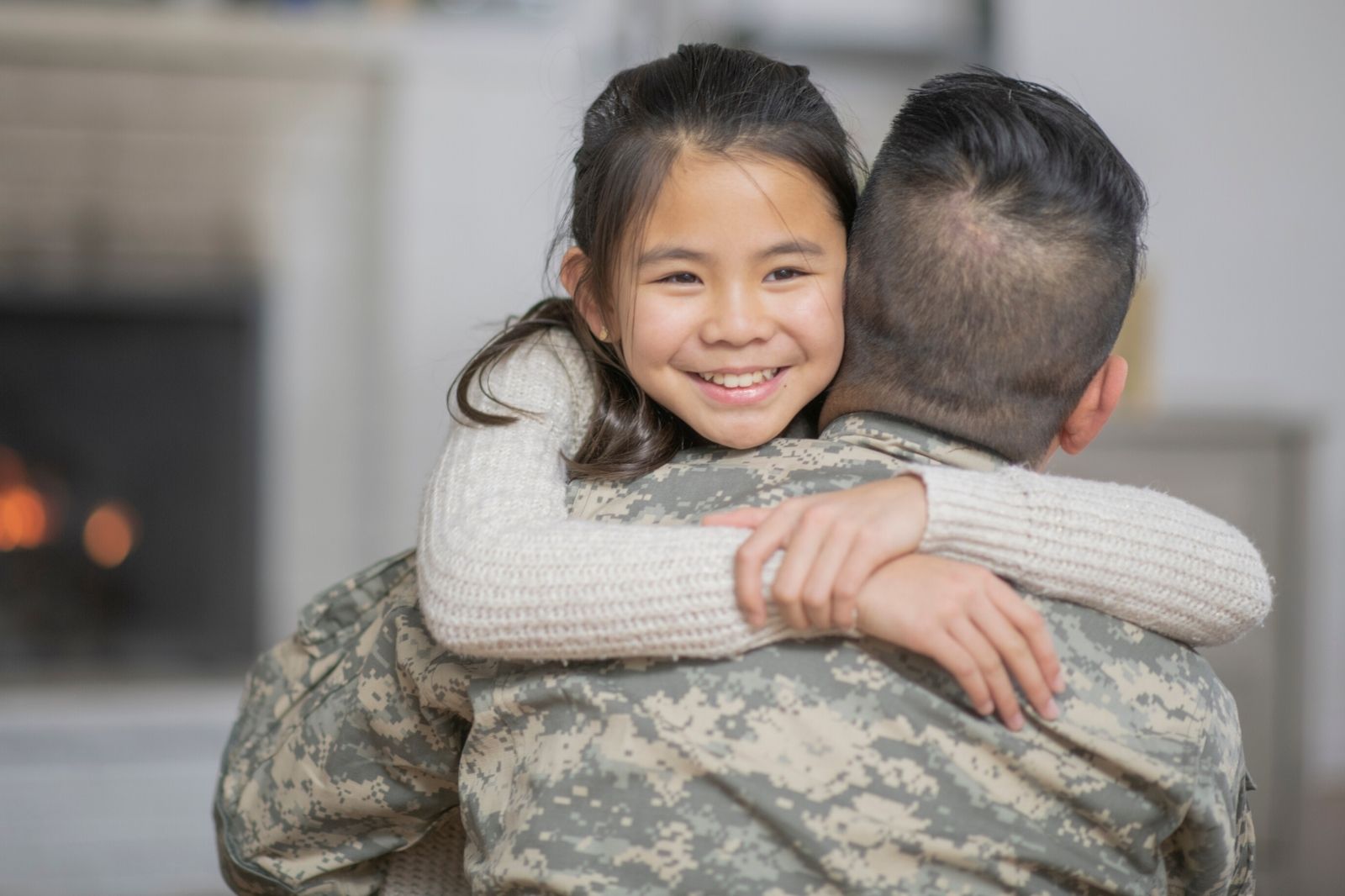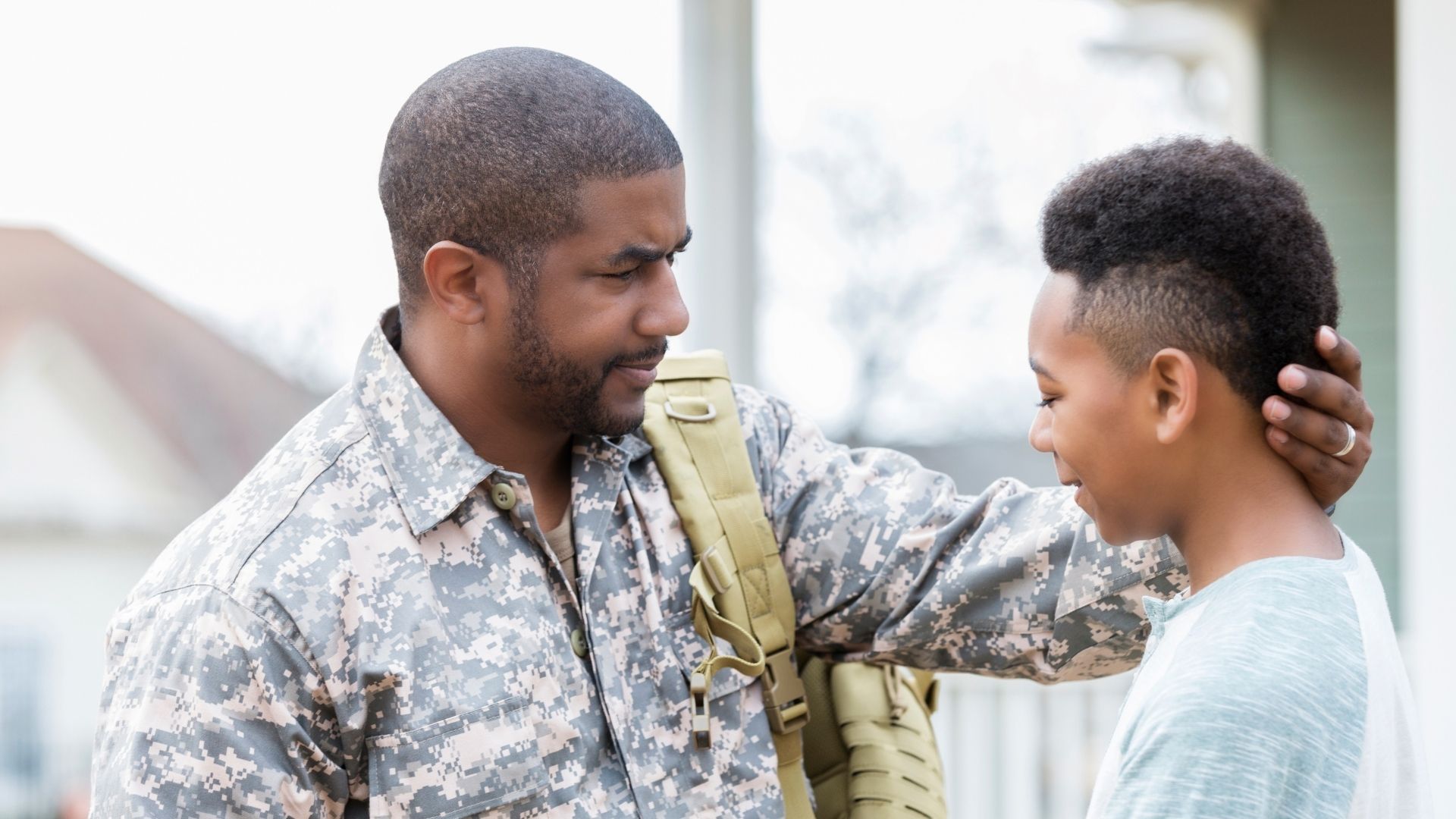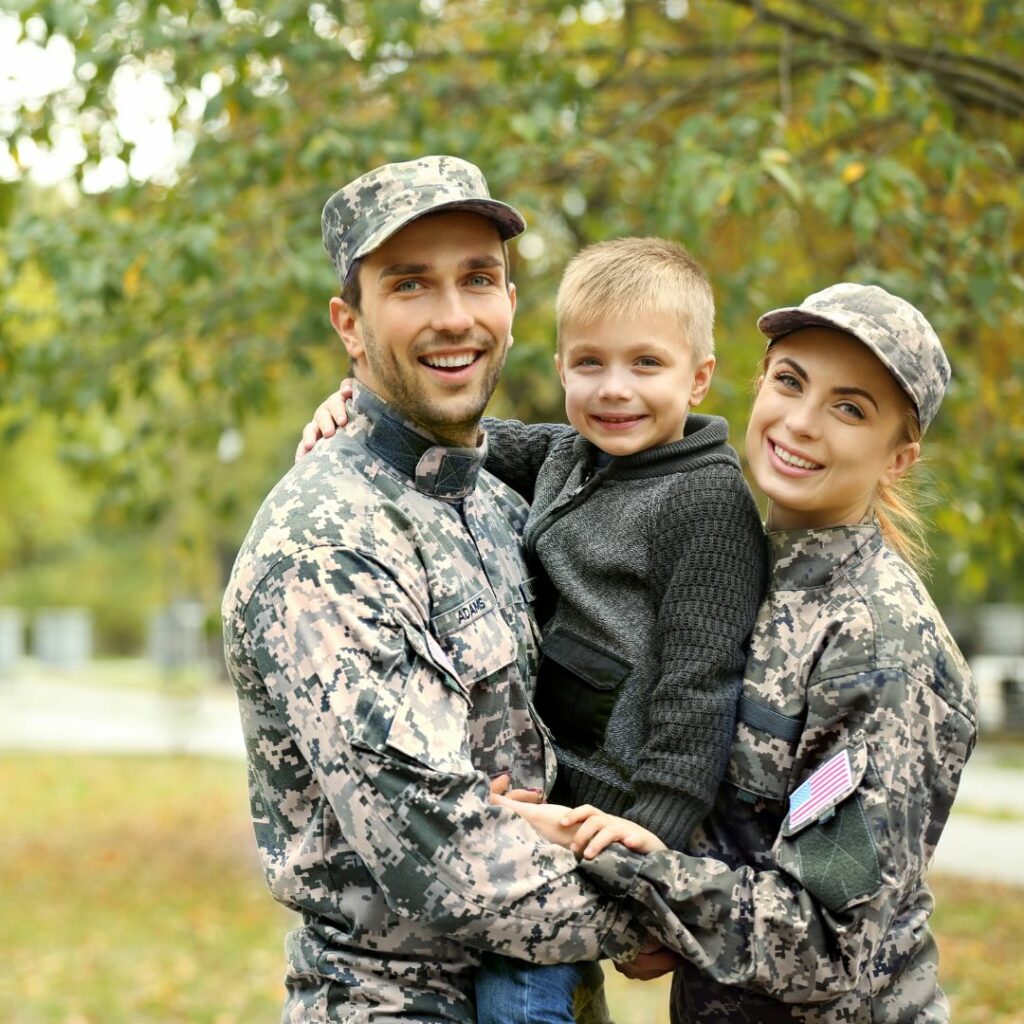Decoding Military Life for Children: A How-To Guide
Understanding military life for children involves acknowledging their challenges and offering essential support. Military deployments can evoke feelings of loneliness and anxiety in children due to uncertainty and limited communication. Managing emotions during reunions can be tough, but open communication and staying connected help bridge the gap. Embracing military routines and traditions brings structure and honor to their lives. Supporting emotions and resilience, along with mentorship programs, are key in fostering their well-being. By decoding military life, you can help children navigate through these unique challenges with strength and resilience.
Key Takeaways
- Acknowledge children’s emotions during deployments.
- Maintain open communication to ease feelings of distance.
- Embrace military routines for structure and purpose.
- Understand and respect military ceremonies and traditions.
- Foster resilience through support systems and positive role models.
Understanding Military Deployments

Understanding military deployments can be a challenging aspect of military life for children, but with some explanation and support, it can become more manageable. When a parent or loved one is deployed, it can have a significant emotional toll on children. The absence of a family member for an extended period can lead to feelings of loneliness, anxiety, and sadness. Coping with the uncertainty of not knowing when they’ll return can be especially difficult.
Moreover, the long distance created by deployments can result in communication struggles. Limited opportunities for phone calls or video chats may make it hard for children to stay connected with their deployed family member. This lack of regular communication can deepen feelings of isolation and make it challenging for children to share their experiences and emotions with their loved one.
During deployments, it’s important to provide children with the necessary support and resources to help them navigate these difficult times. Encouraging open communication, fostering a sense of routine, and finding ways to stay connected can all play a significant role in helping children cope with the impact of deployments.
Coping With Reunions and Goodbyes

When it comes to dealing with reunions and goodbyes in a military family, managing the emotions that arise can be both challenging and rewarding. Handling these emotions can be tough, but remember, it’s okay to feel sad or anxious when saying goodbye or overjoyed when reuniting.
Staying connected during separations is key. Whether through letters, video calls, or special mementos, finding ways to remain close can help ease the feelings of distance. Adjusting to change is part of military life, and it’s normal to feel a mix of emotions when a loved one leaves or returns. Remember, it’s okay to talk about how you feel and seek support from family or friends.
Reunions can bring immense joy, but they may also come with their own set of adjustments as routines change again. Embrace the time together and communicate openly about any feelings that may arise. In military families, managing reunions and goodbyes is a shared experience, and supporting each other through these transformations can strengthen bonds and resilience.
Explaining Military Routines and Traditions

Let’s chat about the rhythm of military life and the unique traditions that come with it.
Understanding daily schedules and ceremonies can help make the military experience more familiar and less intimidating for children.
Daily Military Schedules
Managing daily military schedules can provide structure and a sense of purpose for military families, offering a framework for understanding the routines and traditions that shape military life. Time management and structured routines are essential in military life, helping to maintain order and efficiency amidst the demands of service.
However, it’s equally important to embrace flexibility and adaptability, as military schedules can change rapidly due to unforeseen circumstances or mission requirements.
In military families, each day may bring new challenges and adjustments, requiring everyone to be prepared for sudden shifts in plans. This adaptability fosters resilience and a spirit of teamwork within the family unit.
Understanding Military Ceremonies
Understanding military ceremonies plays a significant role in deciphering the intricate routines and time-honored traditions that shape military life for children. Military etiquette is a cornerstone of these ceremonies, emphasizing respect, discipline, and honor.
Children may witness flag ceremonies, where the national flag is raised and lowered with precision and reverence. Explaining the symbolism behind each movement can help children appreciate the significance of these ceremonies.
Flag ceremonies often involve specific protocols, such as saluting during the national anthem and standing at attention during the raising and lowering of the flag. These practices instill a sense of patriotism and unity within the military community.
It’s crucial to explain to children the importance of following these customs to show respect for the flag and the country it represents.
Supporting Emotions During Transitions
During times of change, it’s important to acknowledge and support the emotions that may arise in your child as they navigate shifts in military life. Your child’s emotional well-being is essential during changes. Coping strategies play a significant role in fostering emotional resilience in military kids.
As a parent, you can help your child navigate these changes by creating a safe space for them to express their feelings openly. Encourage open communication and validate their emotions, letting them know that it’s okay to feel a range of feelings during times of change.
Listen actively and empathetically to what they’ve to say, showing understanding and support.
Additionally, establishing routines and maintaining a sense of normalcy can provide stability and comfort for your child during changes. Encourage activities that promote relaxation and stress relief, such as exercise or creative outlets.
Fostering Resilience in Military Kids
You may find it helpful to focus on building coping skills, creating strong support systems, and surrounding yourself with positive role models as a way to foster resilience in military kids.
These strategies can provide you with the tools and resources needed to navigate the challenges that come with military life and help you develop a strong sense of adaptability and strength.
Building Coping Skills
Building coping skills is essential for fostering resilience in military kids, helping them navigate the challenges of military life with strength and adaptability.
In the face of frequent relocations, parental deployments, and other unique stressors, military children often need effective strategies for stress management and emotional regulation. Encouraging kids to identify their emotions and express them in healthy ways is vital.
Teaching coping mechanisms such as deep breathing exercises, journaling, or engaging in physical activities can aid in building resilience and coping strategies.
It’s important to validate your child’s feelings and provide a safe space for them to talk about their concerns. Encourage them to develop problem-solving skills and positive thinking patterns.
Remind them of their strengths and past successes to boost their confidence. By helping military kids develop strong coping skills, you equip them with valuable tools to face the uncertainties of military life with courage and resilience.
Support Systems
Encouraging a network of support around military children is key to nurturing their resilience and well-being in the face of the unique challenges they encounter. Peer friendships play an essential role in helping kids feel understood and connected. Encourage your child to build positive relationships with peers who can relate to their experiences.
Community involvement provides a sense of belonging and support outside the military environment, offering a diverse network of people who can offer assistance and understanding.
In times of need, counseling services and mental health support are invaluable resources. These services provide a safe space for children to express their feelings, process their experiences, and develop coping strategies. Encouraging your child to seek professional help when necessary can greatly impact their well-being and resilience.
Positive Role Models
To foster resilience in military kids, connecting them with positive role models is essential for their emotional well-being and development. Mentorship programs can provide a platform for these children to interact with inspirational figures who embody leadership qualities and are actively involved in the community. By engaging with such role models, military kids can learn valuable life skills, gain confidence, and develop a sense of belonging.
Being exposed to individuals who’ve overcome challenges and achieved success can instill a sense of hope and motivation in military children. These positive role models serve as beacons of strength and perseverance, showing kids that they, too, can navigate the unique difficulties of military life with resilience and grace.
Through mentorship programs and interactions with inspirational figures, military kids can build a support network that empowers them to face adversities with courage and optimism. Remember, by fostering these connections, you’re helping to shape a brighter future for our military youth.
Building a Strong Support System

Establishing a reliable network of friends and family who understand and appreciate your unique experiences can greatly enhance your resilience and well-being as a military child.
Community involvement plays an important role in creating a supportive environment for you. Engaging in community activities not only helps you feel connected but also allows you to build relationships with others who may share similar experiences.
Peer friendships are particularly vital in providing a sense of belonging and understanding during times of change or deployment.
When it comes to building a strong support system, remember that quality matters more than quantity. Seek out individuals who are empathetic, patient, and willing to listen.
Your support system should be a safe space where you feel comfortable expressing your thoughts and emotions. Don’t hesitate to lean on your support network whenever you need guidance, reassurance, or simply a listening ear.
Encouraging Open Communication
Creating an environment where open communication is valued and encouraged is essential for managing the challenges of military life as a child. Active listening plays a pivotal role in fostering this environment.
When your child expresses their thoughts and feelings about military life, give them your full attention. Show that you understand by summarizing their feelings back to them, providing emotional validation.
Creating safe spaces where your child feels comfortable sharing their concerns is also key. Encourage questions and let them know that no topic is off-limits.
By keeping the lines of communication open, you can address any worries or uncertainties your child may have about military life. Remember, it’s normal for children to have questions and emotions about this lifestyle.
Your support and willingness to listen will help them navigate these complexities with confidence and resilience.
Frequently Asked Questions
How Can Children Help Support Military Siblings During Deployments?
You can offer sibling support by staying connected emotionally. Share your feelings, listen, and be there for them during deployments. Small gestures like sending letters or drawings can make a big difference in their day.
What Are Some Ways to Involve Military Kids in Community Activities?
You can engage military kids in community activities by encouraging participation in sports clubs and extracurricular activities. Explore volunteer opportunities that resonate with their interests, fostering a sense of belonging and connection within the community.
Are There Resources Available for Military Families Dealing With Financial Stress?
When dealing with financial stress, there are resources available for military families. Look into budgeting workshops and financial counseling services that can provide guidance and support during challenging times. You are not alone in this.
How Can Parents Maintain a Sense of Normalcy During Frequent Moves?
When moving frequently, maintaining a sense of normalcy is important for you as a parent. Finding stability through establishing routines and connecting with others in similar situations can help your family cope and thrive during these changes.
What Strategies Can Help Military Kids Deal With Frequent School Changes?
When facing frequent school changes, military kids need coping strategies and emotional support. By openly discussing feelings, maintaining connections with peers, and involving teachers, you can navigate school adjustments and nurture positive peer relationships together.
Conclusion
As you navigate the ups and downs of military life with your children, remember that you aren’t alone. By understanding deployments, coping with goodbyes, and reunions, explaining routines and traditions, supporting emotions, fostering resilience, building a support system, and encouraging open communication, you’re doing an incredible job.
Your dedication and strength are making a difference in your children’s lives. Keep up the great work, and remember to take care of yourself too. You’ve got this!

Chad Adan Kace, a young dad from Vermont, shares his parenting journey with a touch of humor and lots of love. Father to a lively baby, he explores the joys and challenges of fatherhood through his stories.







